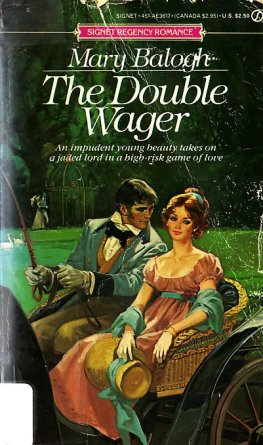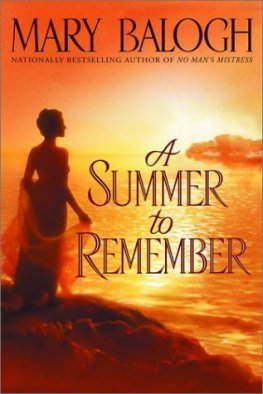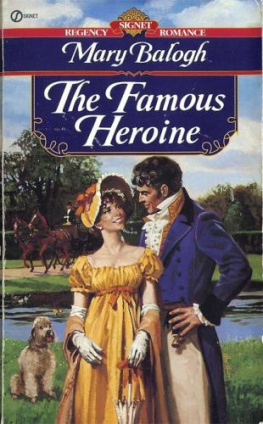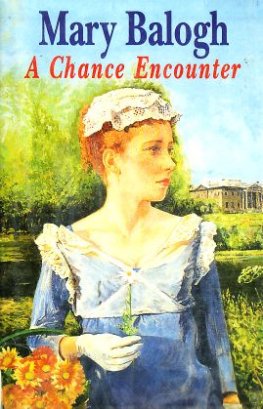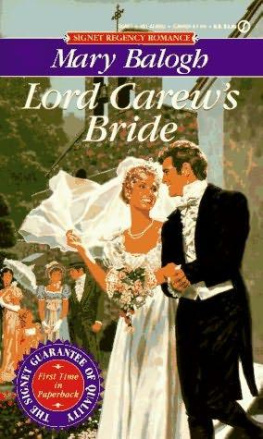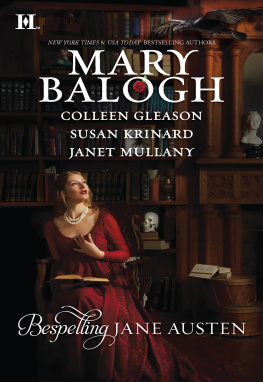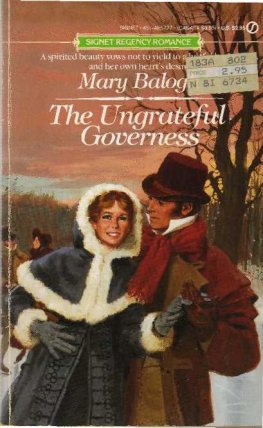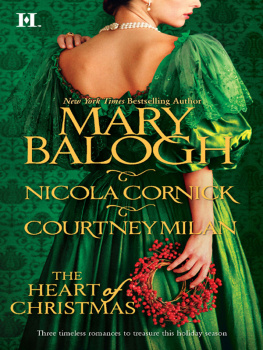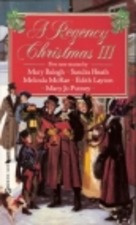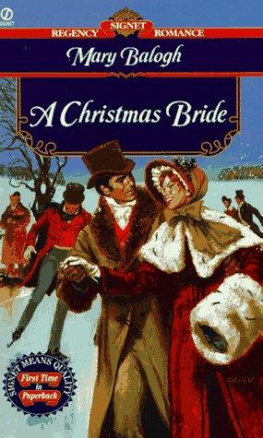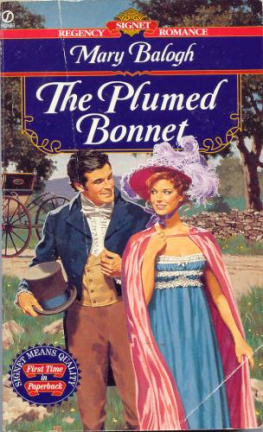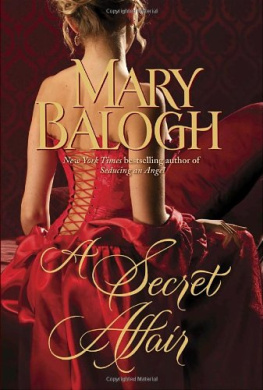Mary Balogh - The Double Wager
Here you can read online Mary Balogh - The Double Wager full text of the book (entire story) in english for free. Download pdf and epub, get meaning, cover and reviews about this ebook. genre: Romance novel. Description of the work, (preface) as well as reviews are available. Best literature library LitArk.com created for fans of good reading and offers a wide selection of genres:
Romance novel
Science fiction
Adventure
Detective
Science
History
Home and family
Prose
Art
Politics
Computer
Non-fiction
Religion
Business
Children
Humor
Choose a favorite category and find really read worthwhile books. Enjoy immersion in the world of imagination, feel the emotions of the characters or learn something new for yourself, make an fascinating discovery.
- Book:The Double Wager
- Author:
- Genre:
- Rating:4 / 5
- Favourites:Add to favourites
- Your mark:
- 80
- 1
- 2
- 3
- 4
- 5
The Double Wager: summary, description and annotation
We offer to read an annotation, description, summary or preface (depends on what the author of the book "The Double Wager" wrote himself). If you haven't found the necessary information about the book — write in the comments, we will try to find it.
The Double Wager — read online for free the complete book (whole text) full work
Below is the text of the book, divided by pages. System saving the place of the last page read, allows you to conveniently read the book "The Double Wager" online for free, without having to search again every time where you left off. Put a bookmark, and you can go to the page where you finished reading at any time.
Font size:
Interval:
Bookmark:
Mary Balogh
The Double Wager
Chapter 1
"It's a melancholy fact," philosophized the young dandy Viscount Darnley, squinting through the brandy in his raised glass, "life ain't what it used to be." He turned his whole body and eyed the faces of his companions. His head would not move without taking his torso with it, imprisoned as it was between the high points of his starched collar.
"Darnley's right for once!" The haughty voice belonged to Sir Wilfred Denning, a satin-clad exquisite, who threw down his cards on the table and yawned delicately behind a white, well-manicured hand. The same hand patted his fair curls to make sure that no hair had strayed from the careful coiffure during the exertions of the game he had just played, and lost. "One wonders if any of us will be left at the end of another five years."
Rufus Smythe, at the other side of the card table, checked the folds of his neckcloth, smoothed white lace over the backs of his hands, and gathered together the guineas and vouchers he had just won. He tried to feign indifference, as if the winnings would not be the first hard cash to line his pockets for several weeks.
"Poor Hanley," he commented. "One wonders which one of us will be the next to go."
"Poor" Hanley was slumped in the depths of a leather chair drawn close to a dying log fire. He sighed pitifully, not removing his eyes from the blaze. "Mama insisted," he said plaintively.
"A life sentence, Hanley," Sir Wilfred reminded him. "She wouldn't take no for an answer," Hanley explained. "Then Papa took her part. Ganged up on me."
"I say, old fellow, that wasn't too sporting, you know. Gad, it's too bad when a fellow's father throws in the chips with his mama on a subject like this." The speaker, Lord Rowland Horton, a small, vivacious man, made his way from a sideboard, where he had been replenishing some empty glasses, and handed one to his luckless friend.
"He never could withstand her," Hanley bleated. "Nobody can. My brother-in-law tried when he married Fanny. He ended up getting a post in India and taking my sister with him. Said he would rather risk the fever there than have to pay duty calls on Mama at least once a month."
Having finished this long speech, Hanley lapsed into his former semicomatose state, the now-almost-empty glass of port dangling from his limp fingers.
Lord Horton stood in the middle of the floor and let his glance stray around the room to take in the other ten occupants. All were in a state of dejection induced by hours of drinking and playing cards, and by the melancholy of the occasion. He smiled.
"Well, gentlemen," he began, "our number is now down to ten, not counting Hanley, who is, to all intents and purposes, a goner. What is to happen to the Knights of Freedom Club? Are we to renew our vows and continue, or have we all changed our convictions since we began with such high ideals eight years ago? There were seventeen of us then."
"It was all very well eight years ago to pledge our allegiance to the single state," Smythe said hesitantly, playing with the lace at his wrist. "It seemed a noble idea then to swear to uphold one another in our resolve never to marry. But, dash it all," he said, looking defiantly at several of his companions, "what's a fellow to do when his pockets are to let? The dice cannot always be relied upon to bring one around. I have to eye the market, I have to admit. Not a happy prospect, but there it is. Almack's! Ugh!" He shuddered delicately.
"Poor Hanley's problem is that his mama wants him connected to a title," Darnley said in a hushed voice, as if he were talking about someone already deceased. "An earl's daughter was too much for her to resist."
"Why do earls' daughters always have pimples or big noses or flat chests?" Denning wanted to know, testing his curls again with a light touch.
"You're very quiet, Eversleigh," Lord Horton commented, turning everyone's attention to the man who was lounging elegantly against the mantel. He was a tall man, dressed all in black, with the exception of his white shirt points, which were not as high as those of the dandified Darnley, and the white neckcloth, which was not as intricately tied as that of Rufus Smythe. Beneath dark hair, brushed forward in a fashionable Brutus style, his face was thin and sharply drawn. He had a strong jawline, lips that were habitually drawn into a thin line, a straight nose, and blue eyes that were usually partly hidden behind half-closed eyelids. His whole stance suggested a lazy boredom. Only a close observer would have noticed that the broad shoulders, slim waist, and muscled calves owed nothing to a tailor's tricks-corsets and padding and such. A close observer might also have noticed that the eyes behind the lazy lids were unusually keen.
"Well, what do you say, Eversleigh?" Horton prompted. "Are you in this to the bitter end? Are you prepared to die a bachelor in your eighty-fifth year or thereabouts?" He grinned.
Marius Devron, Duke of Eversleigh, lifted a quizzing glass, his only ornament, to his eye without hurry and surveyed his friend's grinning face.
"Well, it's like this, Horton," he said at last. "We were young puppies, were we not, and assumed that the realities of life need never catch up to us. A foolish notion, of course." He lowered the quizzing glass and glanced cynically at the almost-unconscious figure of Hanley.
"The realities of life?" Sir Wilfred prompted.
"The need for alliances and such." Eversleigh waved a languid hand in the air, his elbow still resting on the mantel.
"It's all very well for you to talk so scathingly," Smythe complained. "You have no need to marry money, Marius. You're as rich as Croesus. And you don't need to marry position. You can't get much higher than duke. You really do not need to marry at all. You can keep the club going single-handed when the rest of us have been forced to bowout. And you have the delectable Mrs. Broughton as, er, companion."
Eversleigh raised his quizzing glass again and surveyed an uncomfortable Rufus Smythe in silence for a long moment.
"Ah," he said with amiable languor, "but you forget the craving of every man to perpetuate his dynasty, my dear fellow. Even I, I find, shudder at the prospect of being the last of my line. Wives, alas, become necessary evils when one's thoughts turn in such a direction."
"Marius!" Lord Horton bounced across the room to clap his friend heartily on the shoulder. "You aren't actually contemplating matrimony, are you, old boy? You? You have so perfected the art of totally ignoring each year's crop of debutantes and freezing out their hopeful mamas, that you would not know how to start choosing, would you, old fellow?"
"Do you have someone in mind, Eversleigh?" Darnley asked gloomily.
"My betrothed has a sister," said the sepulchral voice of Hanley, who still had not moved a muscle as he sat on in his chair. "Not quite so spotty, either."
"Choosing is a simple task," Eversleigh said.
"Eh?" asked Sir Wilfred.
Eversleigh made the supreme effort of pushing himself away from the mantel and strolling over to the sideboard to pour himself more brandy.
"Choosing a carriage is a difficult task," he said as he returned to the group. "One has to consider style, height, springs, upholstery, color. Choosing a horse is even more ticklish. It should take days and much sober consideration. Choosing a wife is simple. If she is young and virgin, why look farther?"
"Spots," muttered Hanley.
"There are plenty without," Eversleigh replied, lowering himself languidly into the nearest chair. "And I have never observed that beauty ensures good performance in bed, anyway, my dear chap."
"It certainly helps outside bed, though," Horton said with a laugh.
"Perhaps." Eversleigh shrugged.
"I'll wager that you would not really choose so carelessly if it came to the point, though, Marius," Sir Wilfred Denning said.
Font size:
Interval:
Bookmark:
Similar books «The Double Wager»
Look at similar books to The Double Wager. We have selected literature similar in name and meaning in the hope of providing readers with more options to find new, interesting, not yet read works.
Discussion, reviews of the book The Double Wager and just readers' own opinions. Leave your comments, write what you think about the work, its meaning or the main characters. Specify what exactly you liked and what you didn't like, and why you think so.

